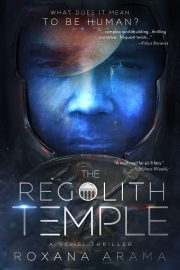Developing Humanity’s Competitive Advantage for the Future Workplace: Empathy Through Fiction
 by Katherine Quevedo
by Katherine Quevedo
Supply and Demand of Empathy
A lot of discourse these days builds up the case for why the world needs more empathy. It’s not a hard case to make. When placed against the backdrop of artificial intelligence (AI) and the possible technological singularity, I believe empathy could become a source of competitive advantage for our species as a whole. A 2015 article in Fortune magazine titled “Humans are underrated” said, “as demand for empathy grows, supply shrinks.” Now, where there’s demand for something, we have an inclination to want to fill it. But how do we go about building up the supply of something like empathy? That’s what I believe is missing or at least an overlooked piece in all of this. What is an actionable tactic for this strategy?
To get to that, first, a story.
The Role of Fiction
I recently took one of my sons to a play: Peter Pan, based on the classic book by J.M. Barrie. In one scene, the fairy Tinker Bell is dying, and Peter implores the audience to help save her. First, he asked us, “Do you believe in fairies?” My son blurted, “Yes!” Then Peter asked us to clap our hands if we believe to save her. My son pounded his hands together. He felt for her. He wanted to save this made-up character whom we saw as just a blinking light on the stage, someone born out of words on a page.
That’s a form of empathy. It’s powerful, and it’s not reserved just for the young and imaginative. I believe fiction is the key. No matter our age, and no matter how isolated we feel or how divided our world becomes, we can spend a bit of time in a fictional character’s perspective and emerge richer for it. Fiction provides us a safe space to experiment with someone else’s eyes, beliefs, and thought processes.
Storytelling has served powerful evolutionary purposes for us for as long as it’s been around, and I don’t see that changing anytime soon. I work as an analyst, and storytelling in a business context typically means either telling the “story” of data to explain what’s driving the numbers, or coupling quantitative data with a true story that details the impact of that information. Useful and necessary, but limited.
Research on Fiction
A 2011 study by Dan R. Johnson showed a clear link between reading fiction and immediately displaying prosocial behavior—being helpful, proactive, giving of yourself, etc.— and a study in 2012 by Kohei Nomura and Seiki Akai demonstrated how fictional characters can elicit similar responses as real people do. The potential for these connections in the working world intrigues me.
Now, the industry for human-computer interface technology has been using something called design fiction (coined by science fiction author Bruce Sterling) for the past decade, which is different forms of fictional narrative to help explore what a prototype might look like out in the world. Design fiction provides a recent example of how fiction, when applied to an industry, can inform decision-making processes, stimulate creativity beyond the fictional world, and partner with other data forms for richer communication of ideas.
Although design fiction exemplifies these concepts well, I believe fiction and the empathy it fosters are ripe for broader application. Fiction is not constrained to the present or the real world. It transcends boundaries—geographical, cultural, linguistic. And it’s an effective, easily accessible way for us to become experts on our own humanity in an increasingly technological reality.
Humanity’s Competitive Advantage
As technology continues to proliferate into every aspect of work, from AI to prescriptive analytics, it will become more imperative than ever for human workers to bolster their competitive advantage—particularly empathy. I say this not to imply an adversarial relationship between humanity and technology but, rather, to encourage our crucial role in partnering to build algorithms, uncover biases, and guide machine learning.
Humans are uniquely suited to make ourselves experts on our own species. Fostering empathy through fiction can expedite the process, exposing us to a broad sample of the human experience in a way that transports us. When we bring that empathy to the business world, with all its complexities, interrelatedness, and change, we are stronger for it.
By experiencing the perspectives of a variety of fictional characters, we simultaneously deepen our awareness of how limited our own viewpoint is and allow ourselves to imagine possibilities beyond our own experience. As a career analyst as well as a fiction writer, I believe this approach leads to better-informed analytics and decision-making. We are better able to explore the potential outcomes of analyses and their resulting business decisions. Empathy enables us to anticipate the human impact of potential business changes, both benefits and drawbacks, which in turn allows for more effective and sustainable operations.
Conclusion
The workplace of the future is going to look different. We should approach it with a collaborative spirit toward technology, which means we’ll have to embrace our role as experts on the human experience. That’s going to take a lot of empathy. I believe fiction can help us get there.
Katherine Quevedo was born and raised just outside of Portland, Oregon, where she works as an analysis manager and lives with her husband and two sons. Her speculative fiction has appeared in Myriad Lands Vol. 2: Beyond the Edge and Triangulation: Appetites and is forthcoming in Nothing’s Sacred Vol. 4. She is passionate about genre fiction, especially in short story form, and its capacity to explore new perspectives. She holds degrees in English and Business Economics and has her MBA. When she isn’t writing, she enjoys watching movies, singing, playing old-school video games, belly dancing, and making spreadsheets.


